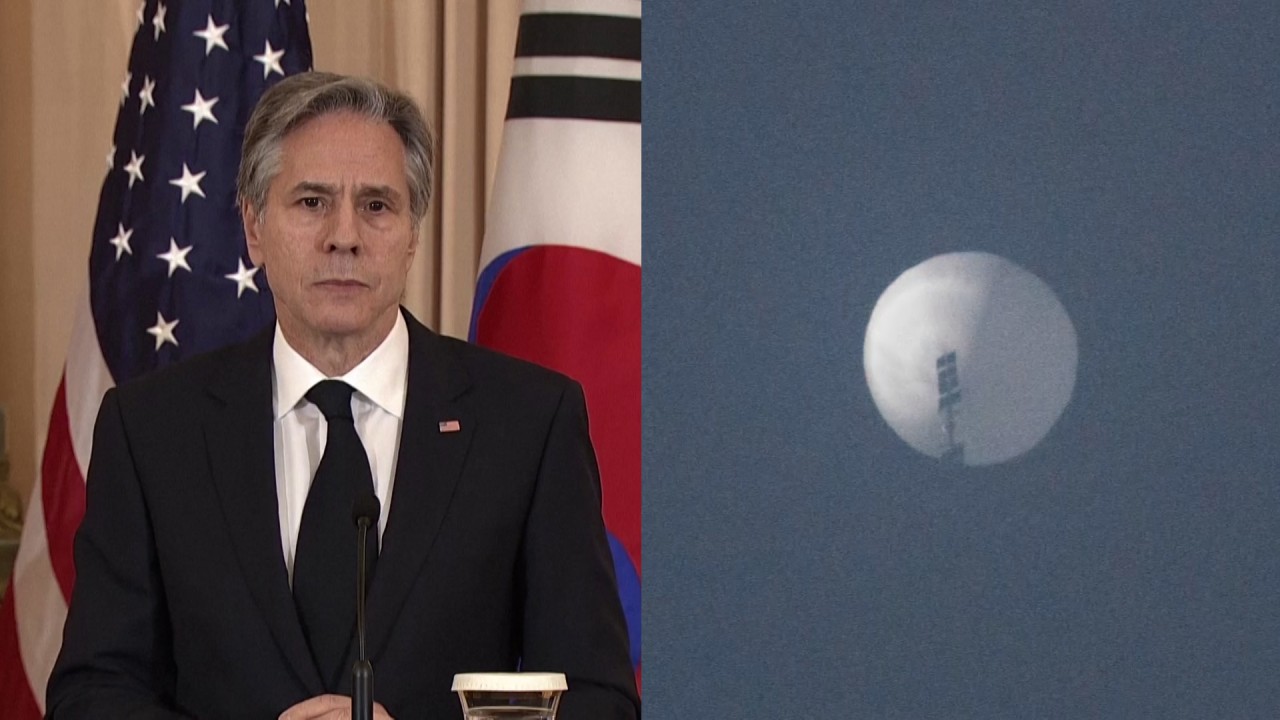
Like a giant balloon, US-China relations have strayed far off course
- The wandering balloon and Washington’s decision to shoot it down have become yet another bone of contention between the US and China
- The deterioration of Sino-US relations is no doubt accelerating, and hopes to stabilise ties are fading fast
The start of the Year of the Rabbit will be remembered for a number of things, not least of which are two “wandering” entities.
China told Canadian and US authorities that the balloon was a meteorological airship that entered their skies by force majeure. However, the US insists it was a spy balloon and refuses to return the fragments of the downed balloon to China.
So far, the US has failed to provide any evidence to show that the Chinese wandering balloon was a spying instrument, or any evidence that would justify the US making such a big fuss. It was, in Wang’s words, a “political farce” and a “mind-boggling and almost hysterical action”.
In response to US accusations, China issued a report on February 20 titled “US Hegemony and Its Perils”, accusing the US of five types of behaviour: political hegemony, in throwing its weight around; military hegemony, through wanton use of force; economic hegemony, through looting and exploitation; technological hegemony, through monopoly and suppression; and cultural hegemony, in the spreading of false narratives.
Under the current circumstances, in which the US perceives China as “the most consequential geopolitical challenge and strategic competitor”, it is obvious that the third thing now wandering off course is the Sino-US relationship. While the Wandering Earth scenario is fictitious, the wandering balloon and Sino-US relations are both harsh realities.
As many have pointed out, the Wandering Earth film series has vividly displayed the differences between Chinese values, world views and heroic models and those of the Americans. Most importantly, in the film, it is the Chinese who play the leading role in saving the Earth.

Locked in a fierce competition in almost all key areas of state power, wandering Sino-US relations are a real threat to international peace and development, as China and the US are not only the world’s top two economies and among the strongest military powers, but also two of the “big five” in the UN Security Council, as well as nuclear powers.
The deterioration of Sino-US relations is no doubt accelerating, and hopes to stabilise ties are fading fast.
For all the kerfuffle, US-China trade continues to balloon
Is it too late for China and the US to settle their profound differences and coexist peacefully while competing fairly before the worst happens? As the English writer John R.R. Tolkien wrote in The Lord of the Rings: The Fellowship of the Ring, “Not all those who wander are lost.”
Xu Xiaobing is director of the Centre of International Law Practice at Shanghai Jiao Tong University Law School


